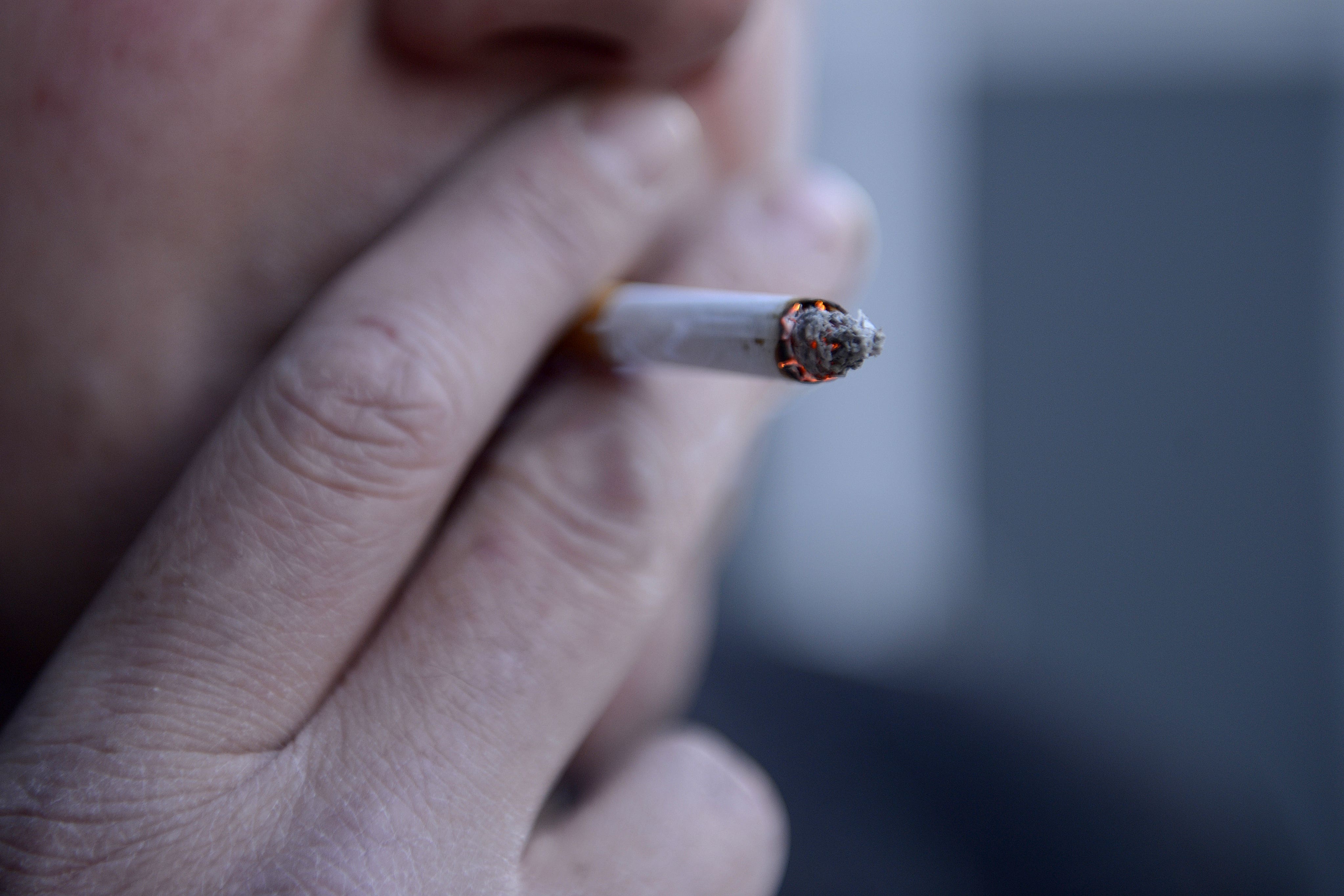Decline in cigarette consumption has ‘plateaued’, study finds
Experts have called for legislation that will aim to create a ‘smoke-free generation’ to pass through Parliament ‘swiftly’.

The decline in the number of cigarettes being smoked in England has “plateaued”, according to new analysis, with more smokers opting for cheaper, hand-rolling tobacco.
There has been “virtually no change” in cigarette consumption in recent years, researchers said.
Experts called for legislation aiming to create a “smoke-free generation” to pass through Parliament “swiftly” in a bid to reduce cancer rates caused by smoking.
People are increasingly opting to use cheaper hand-rolled tobacco over more expensive manufactured cigarettes, proving that consistency in the taxation and regulation across all cigarette types is key
The study by University College London (UCL), funded by Cancer Research UK, used data from 57,778 adult smokers who took part in a monthly survey between January 2008 and September 2023.
It found overall cigarette consumption fell by 22% – from 13.6 per day to 10.6 – between 2008 and October 2019.
However, the decline paused between late 2019 and 2023.
Researchers suggested this could be down to more people working from home following the Covid-19 pandemic, leading to more regular smoking breaks.
Other trends also emerged, including a “sharp decline” in the number of manufactured cigarettes being smoked.
Smokers have “increasingly shifted towards using hand-rolled tobacco”, researchers said.
Average smokers are now having 35% more hand-rolled cigarettes and 47% fewer manufactured cigarettes.
Academics suggested that this could be down to the price of manufactured cigarettes, which has been driven up by tax hikes.
Dr Sarah Jackson, lead author and principal research fellow at UCL’s Institute of Epidemiology and Health Care, said: “This 15-year study captures shifts in smoking behaviour, showing that while the average number of cigarettes smoked per day has fallen, this trend has stalled since 2019.
“People are increasingly opting to use cheaper hand-rolled tobacco over more expensive manufactured cigarettes, proving that consistency in the taxation and regulation across all cigarette types is key.”
The study also found that older people, men, people from deprived backgrounds, and people in the north of England tended to smoke more heavily.
Dr Jackson added: “It’s vital that smoking cessation services are made easily and equally available across the UK, so that those who want to quit smoking are given all the support they need to do so.”
The Bill must be passed through Parliament swiftly and implemented so we can begin to reap the benefits of a smokefree future
Figures published by the Office for National Statistics (ONS) in September showed about 6.4 million adults in the UK reported being current smokers in 2022.
It is the lowest proportion since current data began in 2011.
According to Cancer Research UK, smoking causes about 15 different types of cancer, and leads to the equivalent of about 150 cases of the disease every day.
In October, Prime Minister Rishi Sunak unveiled plans to create a “smoke-free generation” by introducing legislation that would make it illegal to sell tobacco products to anyone born after January 1 2009.
Dr Ian Walker, executive director of policy at Cancer Research UK, said the UCL study, published in Nicotine & Tobacco Research, “makes it clear that the UK Government must not let up in its fight to reduce smoking”.
“All tobacco products are harmful, and more work needs to be done to end cancers caused by smoking for good,” he added.
The Tobacco and Vapes Bill would raise the legal age for buying tobacco – currently 18 – every year by one year so that people born in or after 2009 will never legally be able to buy cigarettes.
The Bill cleared its first Commons hurdle last month, with MPs voting 383 to 67 to give it a second reading.
Dr Walker said: “By voting in favour of the age of sale legislation, MPs have positioned the UK as a world leader in tobacco control.
“Now, it’s vital that MPs continue to listen to the demands of their constituents and place themselves on the right side of history.
“The Bill must be passed through Parliament swiftly and implemented so we can begin to reap the benefits of a smokefree future.”
Responding to the findings, John Waldron, policy and public affairs manager at Action on Smoking and Health (Ash), said: “Every cigarette increases the risk of deadly illnesses like cancer, heart disease and dementia.
“It’s particularly concerning that the most addicted smokers are smoking more cigarettes now than they were in 2019.
“This is why the Government’s proposal to ban the sale of tobacco products to anyone born after 2008 is so urgently needed.
“It is vital that MPs pass the Tobacco and Vapes Bill into law as soon as possible to get us on track to creating the first smokefree generation.”
A Department for Health and Social Care spokesperson said: “We are introducing world-leading legislation to create the first smokefree generation, protecting lives and easing the strain on the NHS.
“Alongside this, we’ve also announced an additional £70 million per year, more than doubling funding in smoking cessation services for the next five years to support people to quit smoking. This includes access to a range of local services including face-to-face support and stop smoking tools.”
Bookmark popover
Removed from bookmarks